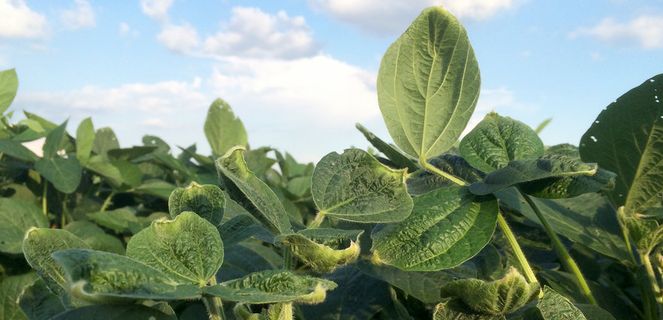Arkansas State Plant Board passes regulatory changes for use of dicamba
by February 21, 2019 3:45 pm 1,047 views

It’s now up to the Arkansas Legislature to approve restrictive use of dicamba during the 2019 growing season.
The Arkansas State Plant Board (ASPB), in a 9-6 vote, decided to allow the use of the sometimes volatile herbicide, Arkansas Department of Agriculture spokesman Brett Dawson told Talk Business & Politics. One member wasn’t present for the vote and the chairman doesn’t vote unless it’s a tie.
The rule change will be submitted to the Joint Budget Committee’s Administrative Rule and Regulation Review Subcommittee, which is scheduled to meet Monday (Feb 25.) If approved by the subcommittee, the proposed rule will be sent to the full Joint Budget Committee for review, which could decide on the issue before the end of February, Dawson said. If approved by the Joint Budget Committee, the new rule will be filed with the Secretary of State’s office and go into effect 10 days after the filing date.
The proposed changes are applicable to all current (Engenia, Fexapan, and Xtendimax) and future dicamba products registered for in-crop use in Arkansas. ASPB officials aren’t sure if legislators will pass the regulatory changes to allow for dicamba use, Dawson added.
“We don’t know. We are submitting the changes,” Dawson said. “They could amend it. They could change it. It’s their decision.”
The regulatory changes include restrictions on in-crop applications of dicamba from May 26 to October 31. A half-mile buffer zone would be required around all non-dicamba crops when dicamba is applied.
A one-mile buffer zone must be established for university and USDA research stations, certified organic crops and commercially grown specialty crops between April 16 and May 25. The new rules prohibit the mixing of dicamba with glyphosate and applicators have to provide proof of training to pesticide dealers prior to purchasing dicamba in-crop products.
Dicamba use has been a controversial topic in Arkansas for several years. It was banned during the 2018 growing season after many problems during the 2017 season.
ASPB made the decision to ban dicamba after it received about 1,000 damage complaints in May 2017, primarily in northeast Arkansas, potentially caused from dicamba drift. The decision was highly controversial, but the board decided the risks were too significant. Dicamba is a weed control herbicide, but it has been suspected of causing damage to other crops. ASPB, which investigates and reviews complaints, enacted higher fines on improper dicamba applications meant to serve as a significant deterrent to potential violators.
Dicamba has been banned in several states. Dicamba has been used as a herbicide for more than 50 years to manage 200 broad leaf weeds. It is a Weed Science Society of America Group 4 synthetic auxin — a plant hormone that causes plants to exhibit uncontrolled growth, according to the University of Arkansas. It is more volatile in warmer climates.
Scientists theorized dicamba was drifting into adjacent crop fields, gardens and other places. Misapplications, weather conditions, or some other unknown factors may have caused the alleged drift. Tests proved the new formulations were less volatile than older ones, but there was still volatility, and it could last up to 36 hours after it was sprayed. Dicamba can attach to dust particles, meaning it can travel much further from target sites than previously thought.
